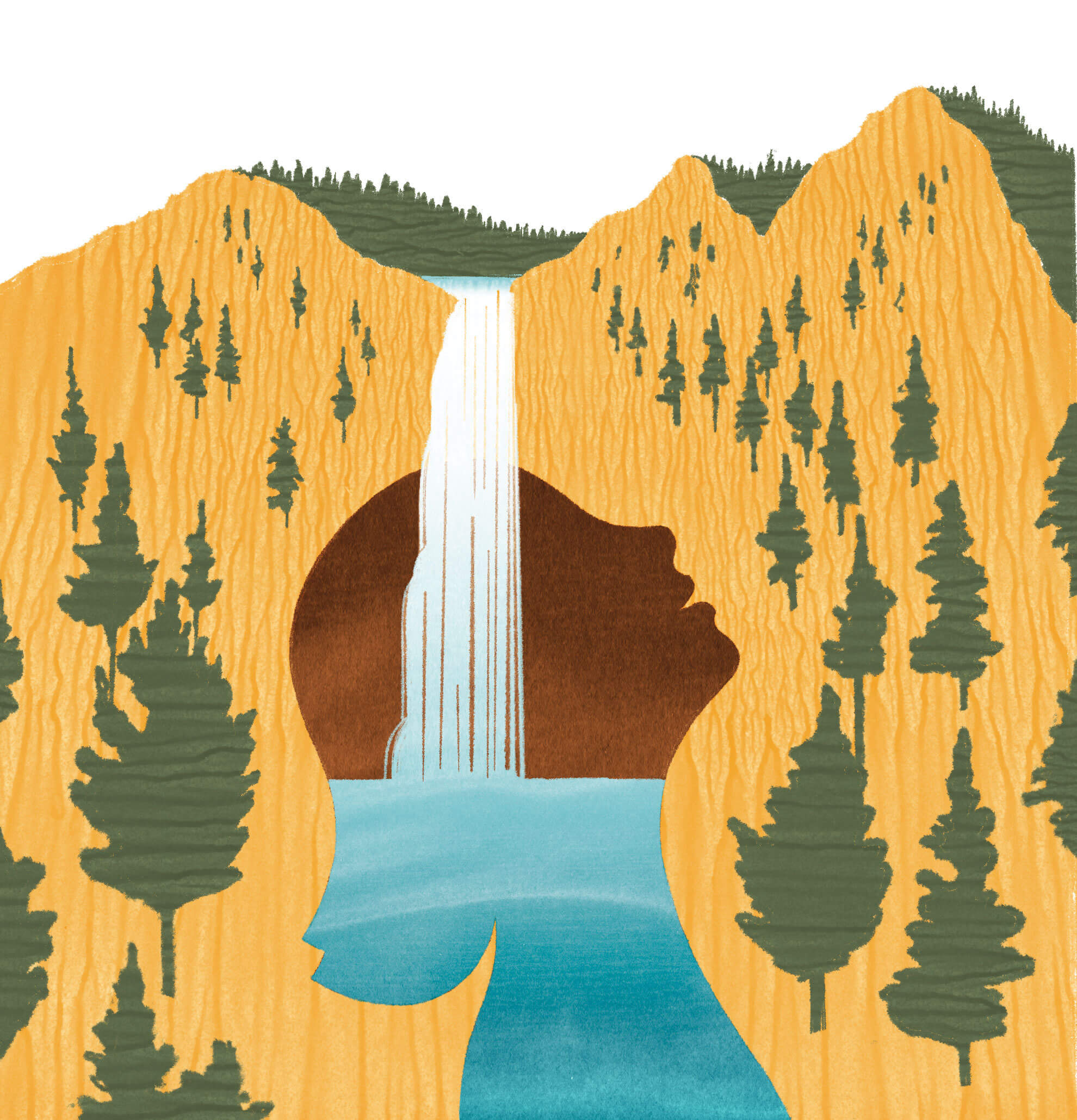
Coping With Change
Climate anxiety is real. A licensed professional counselor explains how to deal with it.
“I want you to close your eyes and do a full body scan to see how you’re feeling and to check if you’re holding any stress or anxiety. Now, breathe in, and then try to let a slow breath out, because this conversation is stressful.”
That’s something that Megan Delaney, a licensed professional counselor who practices ecotherapy, a group of techniques or treatments based on the idea that contact with and involvement in the natural world can have a psycho-therapeutic effect, often says to clients and students when talking about climate change.
Delaney, an assistant professor in the Department of Professional Counseling, whose new book, Nature Is Nurture: Counseling in the Natural World, explores the power of ecotherapy, says one reason the topic of climate change is so stressful to discuss is because the early environmental movement sometimes focused on “scare tactics” in hope of grabbing people’s attention. Such tactics, while important to raise awareness, can be anxiety-inducing and upsetting, and the overwhelming message can actually cause some people to become inactive in seeking solutions, says Delaney.
“Have you ever known anybody who doesn’t go to the doctor because they don’t want to admit they’re sick?” asks Delaney. “To think about the issues of how sick the planet is, it’s like, ‘Oh, if we just deny that then we don’t have to worry about it.’ Because when we really think about how sick the planet is, it’s very sobering.”
Another part of the problem is that as a species, humans have never been more disconnected from the natural environment, which in and of itself contributes to depression, anxiety, and feelings of hopelessness, says Delaney.
“I’ve seen many of us talking about how the shift in our culture has gone from when we were once hunter-gatherers and living mostly nomadically, where we were in tune with the natural world and understood its cycles, to where we’re at now,” she says. “Today, 93% of our time is spent indoors.” In fact, many people spend an average of just six hours each week outside.
One thing Delaney has her clients focus on is giving back to nature—supporting preservation efforts or joining a cleanup effort, for example—in places that are special to them. That helps individuals reconnect with the environment in a positive way, she says. She also emphasizes how important it is to create what she calls an ecological self-plan: a self-care plan of sorts that involves visiting those sacred places regularly.
“Being connected to that space and taking care of it as if you would some- thing special makes us feel good and also gives back to a place,” says Delaney. “It’s self-care, too, right? … Because the science shows that even five minutes outside in nature makes you feel better, less stressed, [and] more relaxed, and you’re also taking care of those places that nurture us.”
Next, read Part VII of this series: The Ripple Effect.